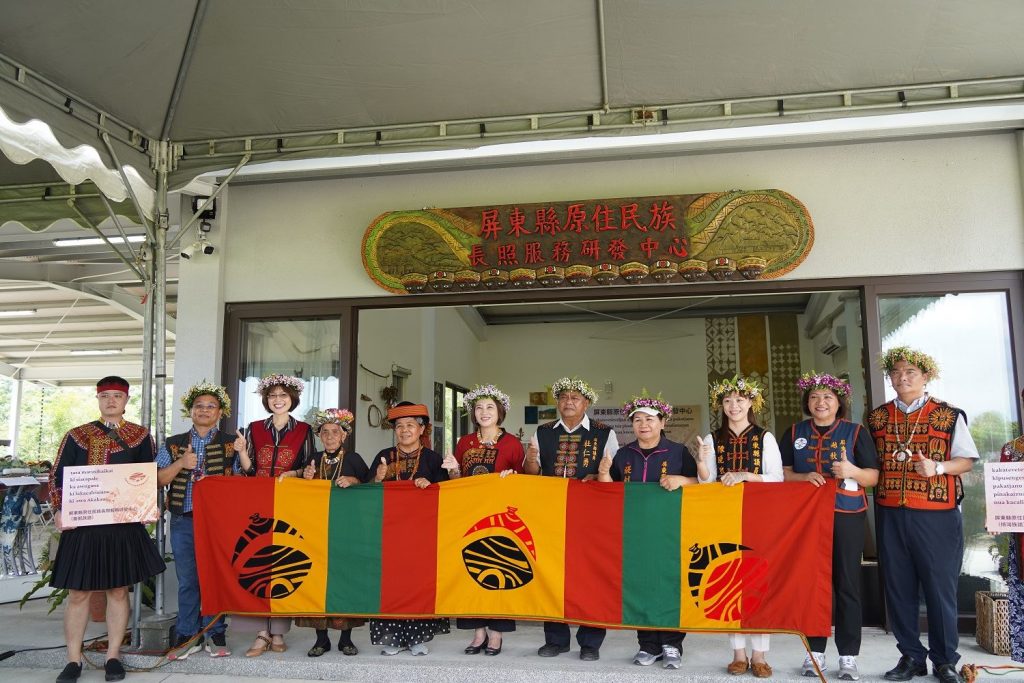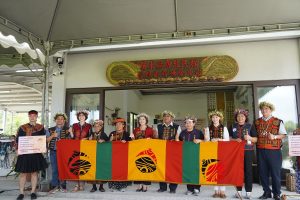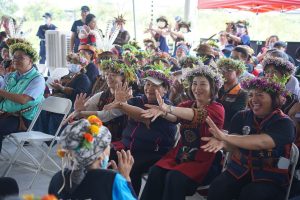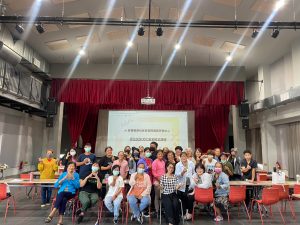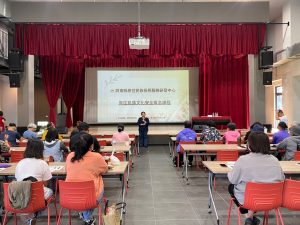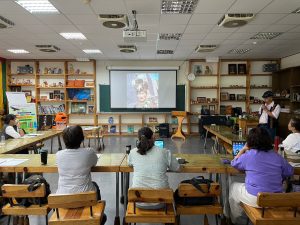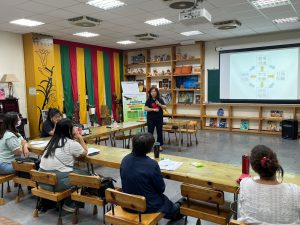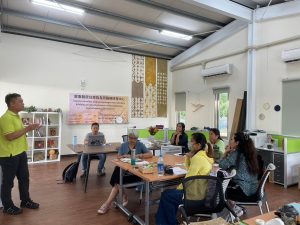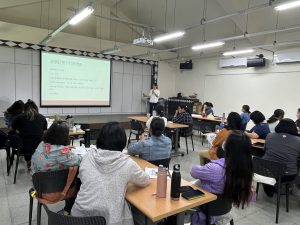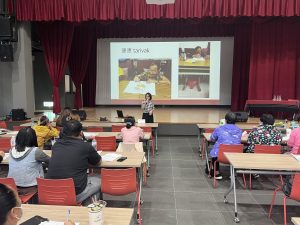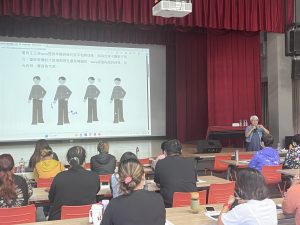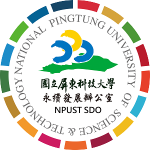On August 1st, “Indigenous Peoples Day,” the Pingtung County Government officially inaugurated the “Pingtung County Indigenous Long-Term Care Service and Research Development Center” (referred to as the “Research Center”) in the Xinlaiyi Tribe. The center is managed by a project team led by Professor Hsu Chun-Tsai from NPUST’s Department of Social Work. This initiative is part of Pingtung County’s groundbreaking effort to establish the nation’s first “Long-Term Care Office,” with the creation of the Research Center being a key policy focus. In addition to establishing the Research Center, Professor Hsu’s team has set four major goals for this year:
- Action Research on Promoting Friendly Care Models in Indigenous Communities: Implementing and studying community-friendly care models tailored to indigenous populations.
- Culturally Safe Long-Term Care Training: Organizing training programs based on cultural safety principles and developing a framework for compiling culturally relevant care guidelines.
- 2023 Indigenous Long-Term Care Services Academic and Practical Symposium: Hosting a symposium to discuss both academic and practical aspects of indigenous long-term care.
- Development of an Information Platform: Building a website for the Research Center and creating a long-term care information platform for indigenous communities in Pingtung County.
The goal is to establish the Research Center as a national model, sharing knowledge and experiences with central authorities and other local governments.
Pingtung County Magistrate Chou Chun-Mi emphasized, “Long-term care services in indigenous communities cannot follow a one-size-fits-all approach. The Research Center’s fieldwork will help us understand the specific needs of tribal residents and provide the most accurate services.” Professor Hsu added, “Long-term care services for Pingtung’s indigenous communities require the voices, support, and strength of local groups to ensure these services align with the cultural and caregiving needs of Pingtung’s indigenous populations, gradually developing into a locally rooted care service unique to Pingtung.”
Following the establishment of the Research Center, the NPUST team will work closely with the Long-Term Care Office to research, plan, and promote a “local indigenous long-term care service model” that meets the specific needs of indigenous communities in Pingtung County. This collaboration aims to improve the overall quality of care in these communities while enhancing the life rights of indigenous people. On September 23rd and 24th, Professor Hsu’s team assisted in organizing culturally safe long-term care training sessions for long-term care workers in Pingtung County (with sessions in northern and southern Pingtung). The training covered topics such as “Long-Term Care and Local Cultural Language,” “Indigenous Rights Advocacy and Social and Health Inequalities,” and “Cultural Care Strategies: Tribal Case Studies and Discussions.” These sessions aimed to enhance the cultural sensitivity and effectiveness of local care services, thereby improving long-term care quality across different tribes. The southern Pingtung session highlighted the need for professional development and resource linkage in the region, as well as the environmental and cultural differences across Pingtung.
With an elderly population rate of 19.73%, Pingtung is on the verge of becoming a super-aged society. In the county’s nine indigenous townships, where the elderly population (aged 55 and above) accounts for 31.62%, each township now has a care station and a community-integrated service center. The region also features seven daytime care centers, 19 home care facilities, nine dementia service points, 73 cultural health stations, and more, with service capacity continually expanding. NPUST is assisting the county government in surveying indigenous areas to segment the aging communities and implement appropriate long-term care services. To deeply explore the experiences and needs of indigenous populations regarding long-term care, the current research focus is on the Wutai, Majia, and Sandimen townships in northern Pingtung. This research involves understanding the circumstances and perceptions of long-term care service users to analyze the utilization of services in indigenous areas. The Research Center is also planning to compile a guide on cultural care this year, inviting experts and practitioners to discuss the current state of long-term care, identify practical needs, and inform policy development.
The “Pingtung County Indigenous Long-Term Care Service and Research Development Center” is located in Xinlaiyi Tribe, providing convenient access for northern and southern indigenous people, thereby facilitating research and exchange. To resonate with the wider public and indigenous communities, local youth designer Langpaw Tupeleng from Jiayi Village in Majia Township was invited to design the center’s logo. The design combines two traditional elements—ceramic pots and circle dancing—to convey Pingtung County Government’s commitment to safeguarding the long-term care needs of the indigenous people, enhancing the overall quality and happiness of tribal care services, and preserving the “life” and “culture” of the tribes.




